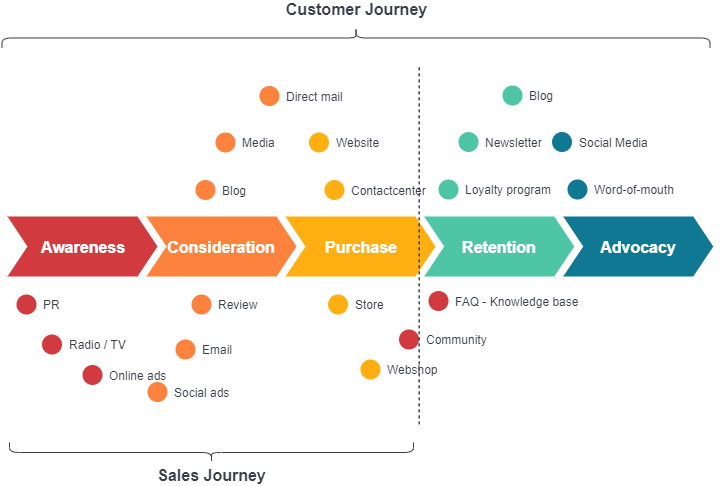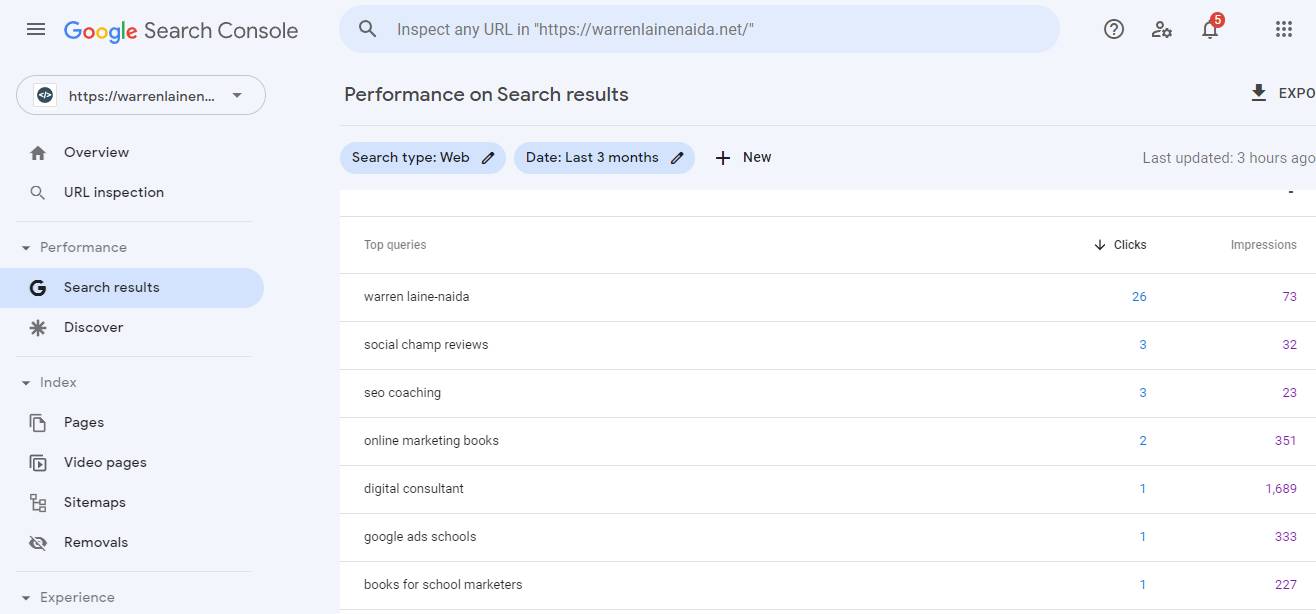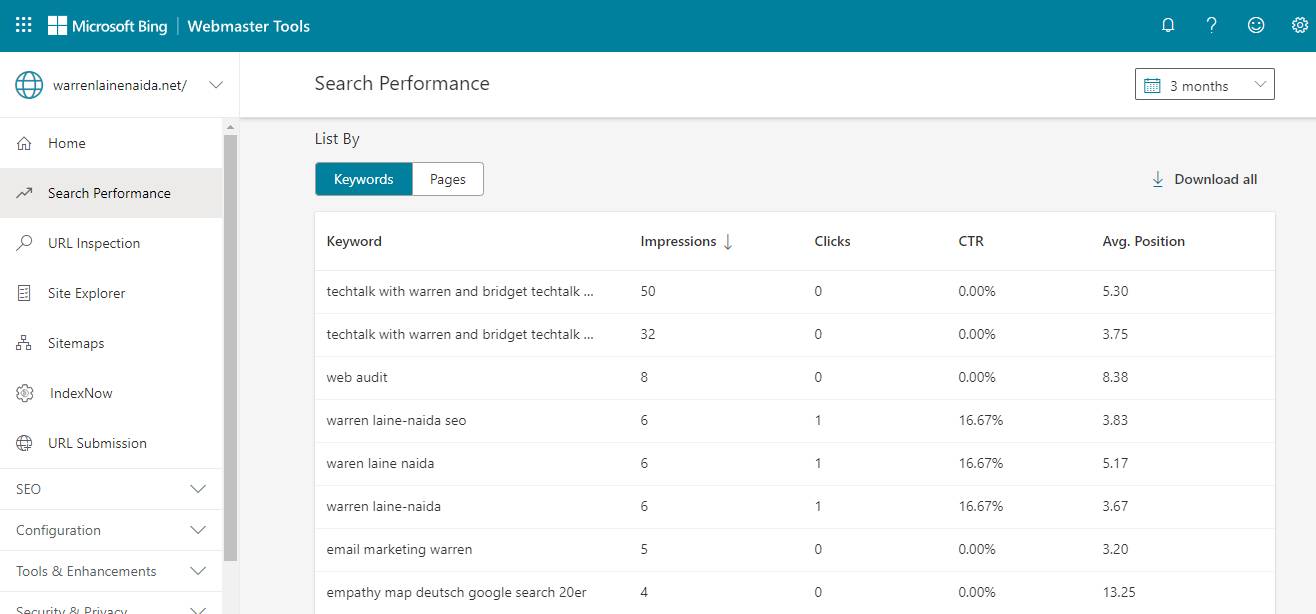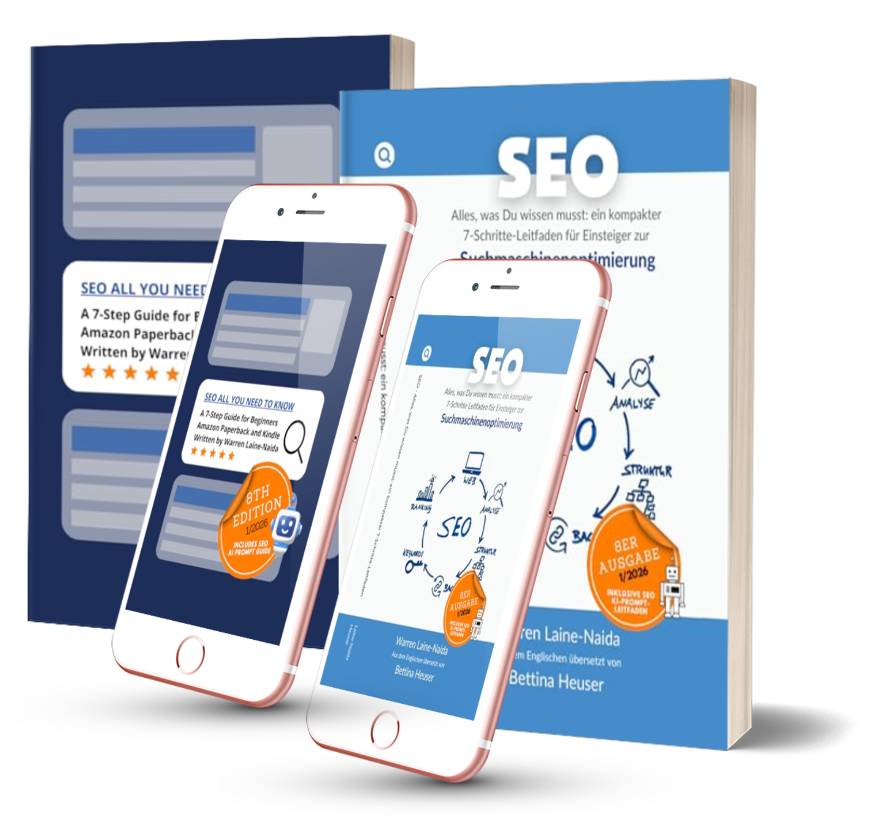Last Updated on March 24, 2025
Discovering the Magic Words that Grab People’s Attention: 7 Keyword Discovery Tips for Your SEO
I’ve said it before, and I’m sorry that the t-shirts aren’t ready yet, but “SEO is a Stop sign”. SEO is about getting in front of people. As you know, we stop for a lot of other things too. And, some of us don’t even stop at stop signs.
What turns peoples heads? What stops people in their tracks? Well, what attracted you to the latest product you purchased? Was it the logo? A jingle? Price? Were they in the right time at the right place? It’s never always the same thing, is it?
What is constant, is that it fits a need. Whatever you buy, whatever interests you, solves a problem. “Free”, “Overnight Delivery”, “Organic Vegan”, “Handcrafted Italian Leather”, “Locally Produced”, or “Rare Breed Backyard Chickens” are just words. Words are signposts that tell us that maybe our search is over.
- How Much Does Google Really Care About Keywords?
- Keyword Discovery is a Part of Your SEO Plan
- People Choose Us Because They Have a Need
- How We Get in Front of People Who Have Never Heard of Us
- Discover Keywords by Understanding Your Customer’s Search Intent
- Discover Keywords by Understanding Your Customer’s Journey
- Discover Keywords by Running PPC Google Ads
- Discover Keywords on Social Media
- Discover Keywords by Monitoring Your Website
- Discover Keywords by Thinking Outside the Box
- Discover Keywords by Using Keyword Tools
- Keyword Discovery in 5 Quick and Easy Steps
People Can Hear About Us Anywhere and Anytime
Perhaps our visitors are doing something other than Googling. Perhaps they’re on Social Media. They hear about us there. They see a mailing, a billboard, a sticker on a lamp post, or a banner ad. They may hear someone talking about us, or see someone using our product. People may not have heard of us before, but they might stumble across us without looking for us.
I know this is really dangerous thinking, but perhaps people aren’t ever looking for us. Not on Google, not anywhere.
Why? One reason is that they’ve never heard of us. They may stop, or at least slow down, if they see us though. Like those floppy air puppets outside of shops, or people handing out flyers in chicken suits.
That’s the second part of what I always say: SEO is about getting in front of people – who have never heard of you before.
“Before you can help a business grow through search engine optimization, you first have to understand who they are, who their customers are, and their goals.”
Moz.com https://moz.com/blog
How Much Does Google Really Care About Keywords?
Keywords is what many people think SEO is all about. However, keywords don’t exist alone. You don’t research keywords once either. It is an ongoing activity. They are important, but they aren’t the Alpha and Omega of SEO.
Keyword research provides you with specific search data that you can use to answer questions like:
- + What are people searching for?
- + How many people are looking for it?
- + In what format do they want this information?
Over 200 Google ranking factors are generally assumed to exist, and only five mention the term “keyword”. There have been countless algorithm updates since 2006, and with each major update, the ranking factors adjust slightly.
- Keyword density
- Presence of semantically related keywords
- UX signals from pages ranking for the same keyword
- Your page’s keyword is in the title of the linking page
- Organic click-through rate for the exact keyword
What do these five factors mean? Let’s take „pizza“ for example.
Google Ranking Factor: Keyword Density
The keyword density of a given web page is the quotient of the number of a certain term and the number of all words in the text. A density value of three to five per cent is generally considered good. Keyword stuffing is not good keyword density.
“Our pizzas are baked in our wood-burning oven.” Good.
“Our pizzas are baked in our pizza oven.” Bad
Google Ranking Factor: Semantically Related Keywords
Semantically related keywords are phrases that are related to each other conceptually. For example, for a keyword like “pizza oven,” some semantically related keywords could be “bread oven” and “wood-burning oven”.
Google Ranking Factor: UX Signals
SEO and UX share common end goals – audience engagement. UX signals matter because they can tell a lot about the quality of information provided on your site. If a visitor has a good experience on your site, they stay longer, do more, return, and share their experience with others.
Google Ranking Factor: Keyword in the Title of the Linking Page
Everything is connected. If you clicked on the link on page A because of the keyword, that obviously is an important factor. Don’t link to pages with the words “click here for more”. “Find more pizza oven tips right here” is much better wording.
Google Ranking Factor: Organic Click-Through Rate
Organic search trumps paid search. If your website is getting a lot of organic search visits based on certain keywords or keyword phrases, you may rank higher than if people just click on your paid ads.
“To give you the most useful information, Search algorithms look at many factors and signals, including the words of your query, relevance and usability of pages, expertise of sources, and your location and settings.”
https://www.google.com/search/howsearchworks/how-search-works/ranking-results
Keyword Discovery is a Part of Your SEO Plan
Keyword Discovery fits into your overall SEO plan in three ways:
- Think about your audience and understand their objectives or needs.
- Target search intent. Meaning the keywords and search phrases your audience uses.
- Analyse your website, social media, and online ads in order to integrate and optimise.
>> Learn more about Search Engine Optimisation right here.
Open Google and search for something you want or a problem you have.
Look at your search query. Is it a single keyword? Is it two keywords? Probably not. People don’t search like that – they use three words like “cheap car insurance” or “green plastic deckchairs”.
- + Which keywords are present?
- + Which keywords should your content be optimised for?
- + Collect and cluster keywords, prioritise them
- + What are your long-tail keywords?
- + What are your question keywords?
- + What is the intent of your pages?
- + What keywords are competitors using?
People Choose Us Because They Have a Need
People may never hear about us simply because they don’t need what we’re selling. I bet you’ve never heard of Klepp Absauganlagen. They are a client of mine that produce industrial air filter and suction systems. You’ve probably never needed something like that. How about Graywhale Farms? You may also have never heard of them because you’ve not thought about buying chickens for your backyard.
The list is endless. According to Statista, there are more than 333 million companies in the world. Amazon alone sells more than 12 million products, most of which we have never heard of, nor will we ever buy.
Think about the last time you needed something specific, and went to the hardware store. Surprising how many different tools and things there are, right? Without that need, we wouldn’t be at the hardware store, and would never have known that you could buy packaged coyote urine at Home Depot.
Need is a very strong influencer. People may choose us because we’re the last product on the shelf, or the only store that’s open on a cold, rainy night.
People may choose us because we answer correctly the following three, basic needs questions:
- + How does your product or service make my life better? (How does it solve my problem?)
- + How much does it cost? (What does it cost me in money, time, and energy?)
- + Where can I get it? (Proximity and ease of access are very important, which explains why online shopping and free overnight delivery is such a hit.)
How We Get in Front of People Who Have Never Heard of Us
7 Keyword Discovery Tips
We can get in front of people who have never heard of us before, by being there when they search. We can do that by matching our website content, our products, and our services, with the keywords people use to search for things.
Where can we find those keywords everyone is using?
Discover Keywords by Understanding Your Customer’s Search Intent
Google is always learning about what we want, based on what we search for and what SERPs (Search Engine Results Pages) we click. It’s not just us searching either. Our searches are registered not only to give us the best results. Our searches also go into the demographic melting pot.
Sometimes we search a lot. 5.6 billion searches each day. That’s not a lot, you think – it’s less than one search a day per person. Most of us search a lot more, though. On average, about four searches a day. How many do you make?
You can find out here: https://myactivity.Google.com
I searched 47 times yesterday. That’s a lot more than the average of four.
When we search for something, it’s because we have a problem to which we require a solution. We are looking for information; we would like to buy something, go somewhere, or connect with someone.
- + Know Intent (“what is SEO?”)
- + Simple Know Intent (“30 euro in USD”)
- + Do Intent (“iPhone charger cheap”)
- + Website Intent (“Nike products”)
- + Visit Intent (“pizza”)
We usually have one main intention and several secondary intentions.
Let’s look at a search for “pizza oven prices”.
- + Main intent: buy a pizza oven
- + Secondary intent: buy some pizza pans for the pizza oven
When we think about a customer’s search intent, we also need to distinguish between implicit and explicit search intentions.
What about when I search for “doughnuts” on my mobile phone
- + Explicit intent: buy a doughnut
- + Implicit intent: close by (local/mobile search)
Shoes, boots, shoe polish, shoe repair, shoelaces, shoe inserts, ballerinas, cobbler, foot spray, socks, leather, suede, stretching, running shoes, jogging shoes, tennis shoes, sneakers, loafers …
Many terms revolve around those things we are searching for, implicitly or explicitly, and in a semantic or pragmatic way. Think of this as your Keyword Ecosystem.
Keywords mean intent, and intent has a lot to do with where people are in the customer journey:
- + What are people looking for?
- + Why are they looking for it?
- + What terms are they using?
“One of the biggest SEO mistakes you can make is neglecting keyword research in favor of producing ‘great content’. That’s because you need keyword research to pinpoint where your customers are at in the customer’s journey.”
https://www.searchenginejournal.com/keyword-research/free-tools
Discover Keywords by Understanding Your Customer’s Journey
Finding keywords that connect with your customers mean knowing what they are interested in as well as their intent. It‘s also necessary to know where they are in their journey.
Think about it. Different words are relevant for every stage of any given process. This is why restaurant menus list desserts at the back. When you are in the market for a washing machine, you aren’t searching for repair tips.
It’s important to understand that the Customer Journey and the Sales or Marketing Funnel are two different things. The customer journey need not actually include a purchase. During the entire time, however, customers can be targeted by our marketing via our blog, emails, or social media.

Let’s look at this example of the customer looking for meat products or meat substitutes in relation to the customer journey.
Customer journey/marketing funnel Step 1: Awareness
Origin of the meat, health considerations, fitness considerations, trust, price, organic …
Customer journey/marketing funnel Step 2: Interest
Vegan and vegetarian substitutes, recipes, side dishes, sauces, beverages …
Customer journey/marketing funnel Step 3: Purchase
products, brands, ordering process, recipes (ingredients), price, availability…
Customer journey/marketing funnel step 4: Loyalty
sharing favourite recipes, ratings, sharing experiences, hashtags …
Of course, the funnel is not linear. There are continual connections between the four. The purchase of an item can be stopped at the checkout counter by a push notification on our phone for a cheaper price somewhere else, for instance.
Discover Keywords by Running PPC Google Ads
Organic search is a long game. While organic SERPs are clicked much more often than paid ads, it can take longer to get noticed with only organic search. Ads are connected to our organic search – they appear in the same place.
Like SEO, ads are precise, targeted, and often convincing. Therefore, using ads in combination with our organic SEO is a good strategy.
- + Start with Google ads.
- + Use them to learn what people are searching for.
- + Use that for your SEO.
Search engines can only bring traffic to the website if the matching search terms, the product or the service are also known or if the searcher suspects a certain solution to his problem.
Just remember – Google Ads Keyword Planning Tool is for Ads. Ads show and are clicked on when someone is ready to buy something. This means the semantics are different than for informational searches. It also means that the web page connected to these ads is a special page – a Landing Page.
Ads are displayed to make a sale, or generate a lead. They are not very good as giving information if you just happen to be browsing. Keep that in mind when you decide upon keywords discovered in this tool.
Focus Landing Page: While a landing page directs you with clarity on the offered content and actions to take, a homepage serves as the navigational hub akin to a table of contents for your website.
The Difference Between Keywords for Ads and for Organic Search
There is a difference between PPC keywords – keywords suitable for your Google Ads, and Organic keywords – keywords for being found without an ad. The difference is intent. What we are looking for that will tell Google to show an ad compared to what we are looking for that Google sees no “in market” intent.
Here is an example: Cheesecake recipes vs Cheesecake pan
We ran Google ads for our SEO course, and found a big difference between the search terms people used that activated our page in Google SERPs and those that activated our Google Ad. We checked those in Google Ads and in Google Search Console. The results are here:
The most interesting takeaway is that not one keyword is similar to one in the other list. Our intent search terms are different.
Discover Keywords on Social Media
While social media isn’t a direct ranking factor for Google, it is complimentary to your SEO work. If people are talking about it, then you have a relevant topic. Google sees these social signals as relevant too.
Hashtags are social media keywords. They are too often used as decorations or highlights. They should bring us social media posts matching those words. Should. How often have you clicked on the hashtag #chocolate only to find everything but that sweet and yummy concoction?
Watching what hashtags are trending on social media platforms where your customers can be found, for topics relevant to you and your website content, gives you another source of discovery.
Sources of keywords on social media include:
- + Twitter’s trending search function
- + Instagram hashtags
- + Youtube’s autocompleting function
- + Search trends on Pinterest
- + LinkedIn topics of conversation
“I find myself saying this often: hashtags are links. They are for filtering and search. Use them at the end so your copy is easy to scan and read.”
Bridget Willard https://bridgetwillard.com/what-is-a-hashtag
Discover Keywords by Monitoring Your Website
Search Engines fall into two basic categories – Google and Bing. Yahoo and others use Bing’s search engine. Google and Bing each offer a Search Console tool. You can use it free of charge with a Google account. Simply create an account, and connect your website’s sitemap.xml file to the Search Console.
You can see below, the search terms that Google considered relevant to my website (top image) and which were searched and activated by my website in the SERPs on Bing (bottom image).
Hot Tip: Don’t Ingore Bing! Bing SEO: An Essential Guide for Your Small Business, Nonprofit, or School


Click here to register for Google Search Console or click here to register for Bing’s Webmaster Tools. Both are free of charge.
Over time, you will see a detailed list of what keywords people entered into either Google or Bing that related to your website. You can see if they clicked, or if one of your web pages appeared in the SERPs.
This is a great way to discover what terms people are searching for – and which of those terms got you a click. We often appear in the SERPs but that isn’t a guarantee someone will click on our page.
I wrote an entire post about the importance of your sitemap. Click here for the post and the video.
What should you write about in your blog?
- Find out which keywords your website is visible for.
- Make sure you are on page 1 for these keywords.
- Reinforce this with blog posts about these keywords.
One popular website was ranked #1 on Google for the term “Air Pods” because it wrote 46 blog posts on that key term in three months!
“A sitemap tells Google which pages and files you think are important in your site, and also provides valuable information about these files.”
https://developers.google.com/search/docs/advanced/sitemaps/overview
Discover Keywords by Thinking Outside the Box
Search Engines v2.0
Did you know, Amazon, eBay, YouTube, Amazon Music and co. Are also search engines. Not many people look for a product or a film – or music for that matter – on Google. No. They go straight to the source.
If your customers are buying your products on these platforms, you need to discover the keywords used on those platforms.
So we can add two other questions to our discovery list:
- + Where are your customers?
- + Why are they there? / What are they doing there?
We know they have a problem and are looking for a solution. A solution is not only a product or service, it is also price, availabilty, speed of delivery, comfort, points, ability to pay in installments … which explains why so many poeple go straight to Amazon.
Sprechen Sie Deutsch?
Are your customers in a different country from you? Are they searching in English? Spanish? How about German? No? There is another keyword discovery chance. They may also have a unique regional variation of your product for which they are searching.
Donut, doughnut, crullo, churro, berliner, and krapfen are all “donuts”. A shandy, panaché, alster, and radler all mean “beer with lemonade” What keywords are your customers using for your product?
“Most people start keyword research by entering a few broad seed keywords into a popular keyword tool, then checking keyword ideas. There’s nothing wrong with this process because it makes sense to tackle popular keywords. But it does leave some of the less obvious keywords on the table.”
https://ahrefs.com/blog/advanced-keyword-research
Discover Keywords by Using Keyword Tools
Have you checked the internal search of your website? Often people look for things they can’t find on your website. That information can be quite helpful.
There are TONS of keyword research tools out there. Some are free; some require an account, and some require an account and payment.
These are my favourite keyword research tools:
Google Suggest https://www.google.com Google is not the only search engine but it is the most-used
Google’s People Also Ask questions in the SERPs – This is SEO gold!
Google: in Google search enter: site:yourdomain.com thekeywordyouwanttocheck
Google Search Console https://www.Google.com/webmasters/tools
Google Ads Keyword Planner https://ads.google.com/home/tools/keyword-planner
Ahrefs https://ahrefs.com/keywords-explorer
Answer the Public https://answerthepublic.com
Keyword Tool IO https://keywordtool.io
Semrush https://www.semrush.com
Sistrix https://www.sistrix.com
Keywords Everywhere’s free browser extension https://keywordseverywhere.com
Keyword Discovery in 5 Quick and Easy Steps
Already keyword research sounds like a lot of work, right? Okay, here is a five-step shortcut:
- Create a list of (relevant to you, your customers, and your website’s content) keywords
- Look at the first page of Google. How often do these keywords appear?
- Look at your own website – do your focus keywords exist on your site?
Google “site:yourdomain.com keyword” keyword is a specific word, like pizza - Create content that is better than what exists using these keywords
- Give people a reason to come to your website (social media shares, perhaps Google Ads)
You may get lucky with this approach, so I would suggest you try it for at least one of your pages. Then you can A/B test the process. After that, repeat this process for other important pages on your website. You have nothing to lose.
Remember – Google indexes and displays individual pages in the SERPs – NOT domains.
Keywords are relevant to individual pages of your website – NOT your entire website. Unless your entire website is solely about pizza flour and nothing else. If you have a pizza website you probably also have other, related terms, that people will search for like pizza hawaii, pizza delivery, pizza recipes.
This is in No Way the Whole Keyword Discovery Story
A story never ends. If you read The Outsiders, Catcher in the Rye, The University Club, or whatever your favourite book happens to be, you will always have a unique version of it compared to someone else. That’s the nature of words. They mean different things to different people. Our experiences and needs are different from other people’s.
Your customers are never satisfied either. They continually need something and are not always loyal to brands. There is also always a new, sparkly, thing on the market to interest and excite them too.
There is no end to learning about which keywords your customers use, when, why, or how. This Discovery Step is just the first one. Enjoy!
Update: Getting Found for Your Own (Keyword) Name
Today’s Local SEO class gave me a new perspective on an old belief of mine, specifically that if someone knows your (company, product, service, or your own) name, then you don’t need SEO.
SEO being the technique to get in front of people who don’t know your (company, product, service, or your own) name.
Do they know my name? Can I be found on Page 1 if they search for my name? Yes: don’t let that change! No: get to work!
Am I being found for keywords? Yes: don’t let that change! No: get to work!
Am I being found for keywords, but not getting clicks? Yes: Get to work! No, I am getting clicks: don’t let that change!
Focus on: getting found for relevant keywords you are currently not being found for.
Focus on: getting clicks for those relevant keywords you are currently being found for.
SEO All You Need to Know: Get Yourself and Your Website Found!
A 7-Step Beginner’s Guide to Basic Search Engine Optimisation
(8th Edition! 1/2026)
My SEO course book is intended for those starting their search journey. SEO is an essential component of your online marketing strategy. Book includes an SEO AI prompt guide!
Paperback and eBook.
Auch auf Deutsch erhältlich!
